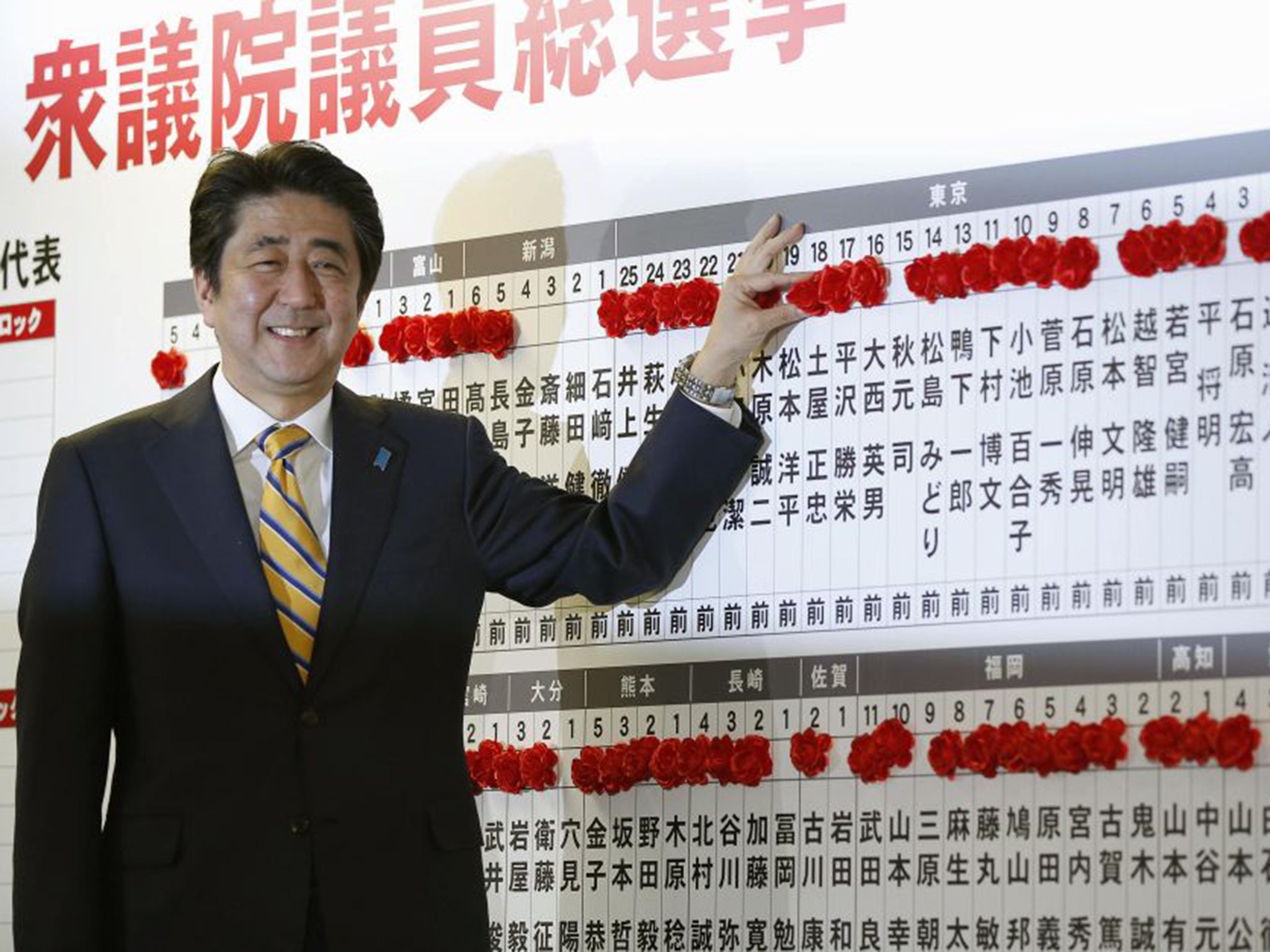Boost for Japan’s Shinzo Abe as ruling coalition heads for election win

Your support helps us to tell the story
From reproductive rights to climate change to Big Tech, The Independent is on the ground when the story is developing. Whether it's investigating the financials of Elon Musk's pro-Trump PAC or producing our latest documentary, 'The A Word', which shines a light on the American women fighting for reproductive rights, we know how important it is to parse out the facts from the messaging.
At such a critical moment in US history, we need reporters on the ground. Your donation allows us to keep sending journalists to speak to both sides of the story.
The Independent is trusted by Americans across the entire political spectrum. And unlike many other quality news outlets, we choose not to lock Americans out of our reporting and analysis with paywalls. We believe quality journalism should be available to everyone, paid for by those who can afford it.
Your support makes all the difference.Japan’s ruling coalition was heading for a resounding victory in lower-house elections last night, firming up Prime Minister Shinzo Abe’s hold on power as he prepares to push forward on several politically difficult fronts.
Media projections, based on exit polls, showed the ruling Liberal Democratic Party easily retaining its majority in the House of Representatives. Exit polls have been reliable predictors of the final results in past Japanese elections.
The Liberal Democrats, a conservative party that has been in power for most of the post-World War II era, appeared to have fallen short of securing a two-thirds majority on their own, but may have done so together with their coalition partner, the Buddhist-backed Komei party.
In early returns, the two parties had already locked up 278 seats in the 475-seat lower house, according to national broadcaster NHK.
A big victory could help Mr Abe pursue his agenda, including economic reforms, nuclear-plant restarts and revising Japan’s constitution. But opposition from vested interests and sizeable segments of the public could still stymie his plans.
Mr Abe, who took office two years ago, called Sunday’s snap election last month, saying he wanted a fresh mandate for his economic revitalisation programme.
AP
Join our commenting forum
Join thought-provoking conversations, follow other Independent readers and see their replies
Comments